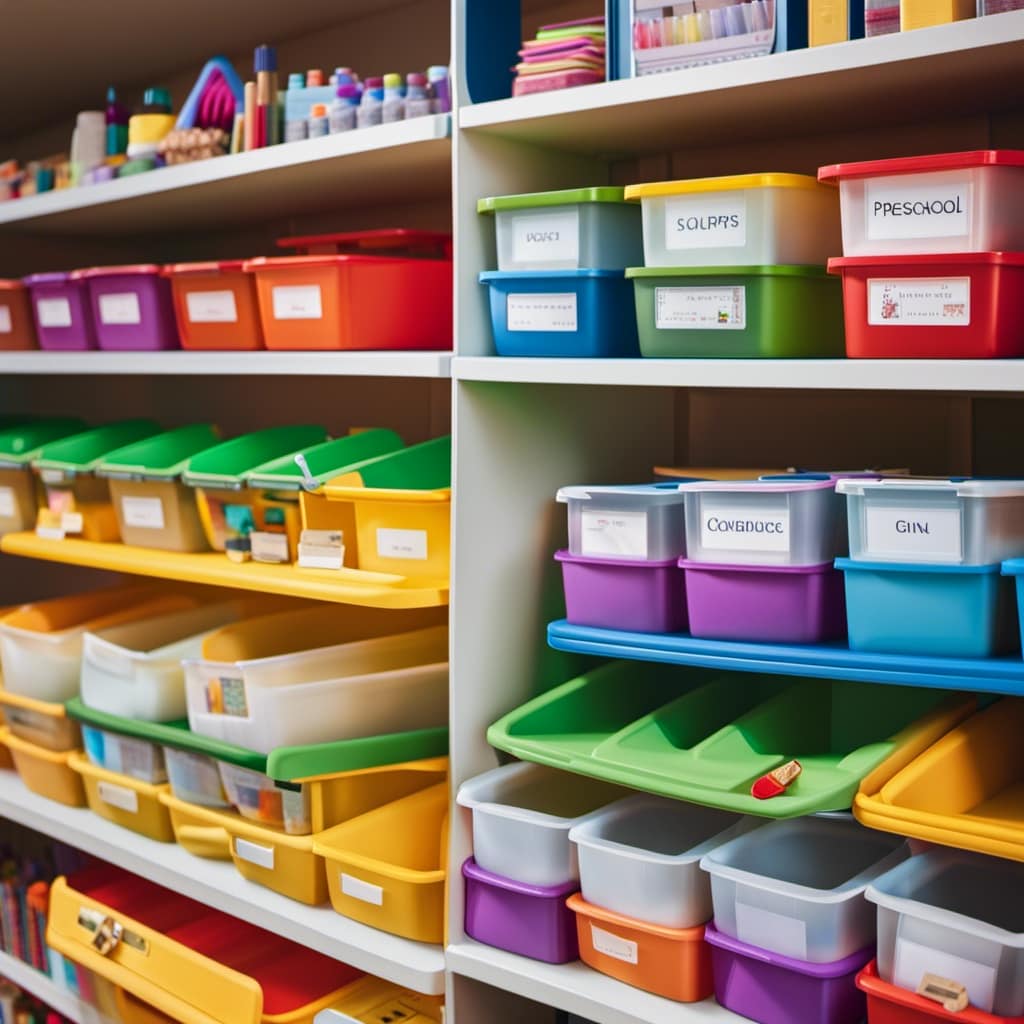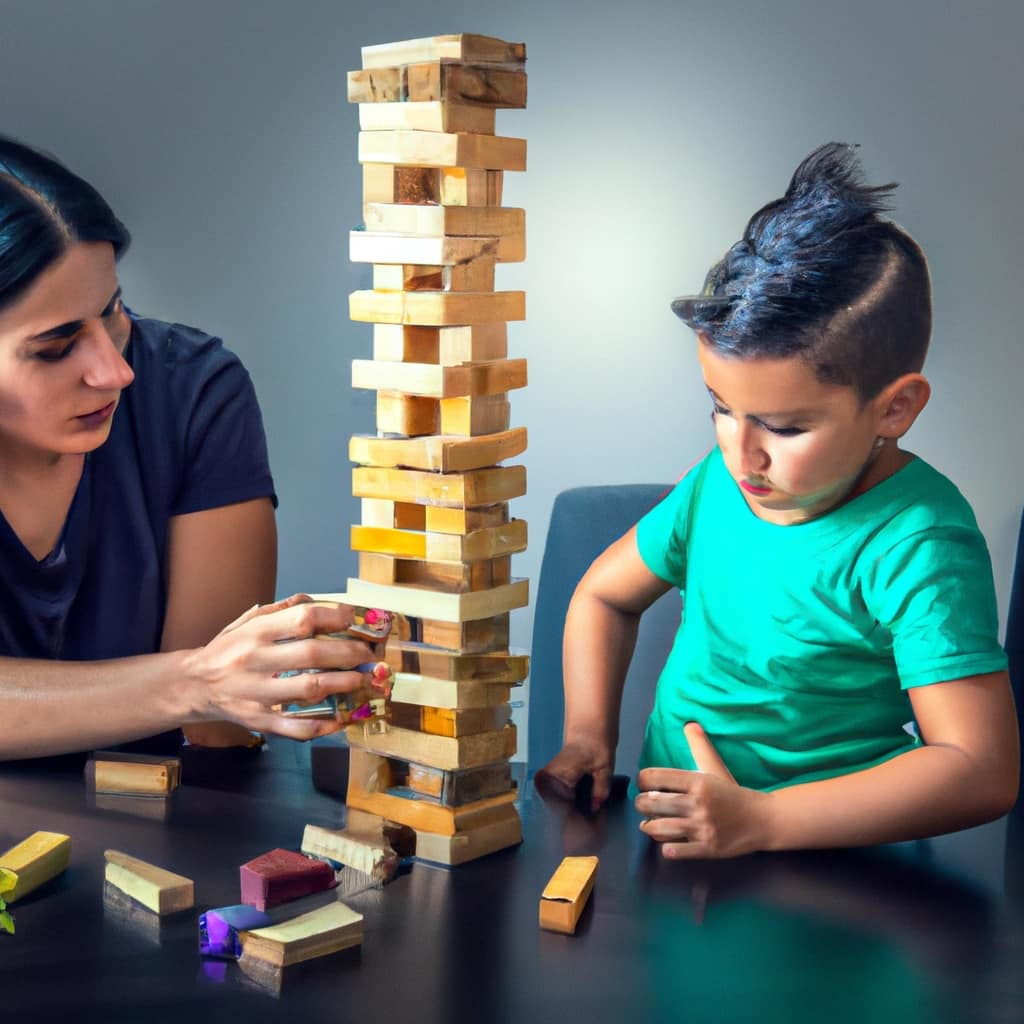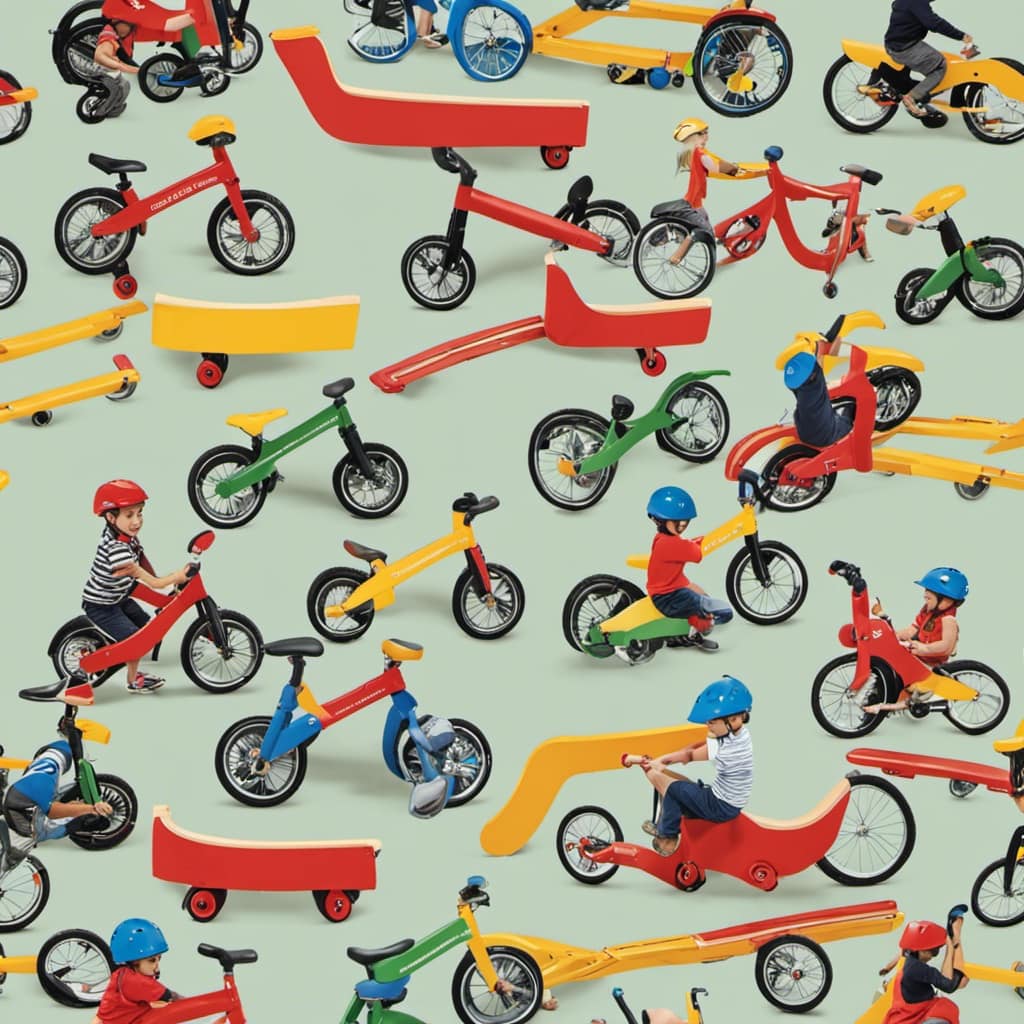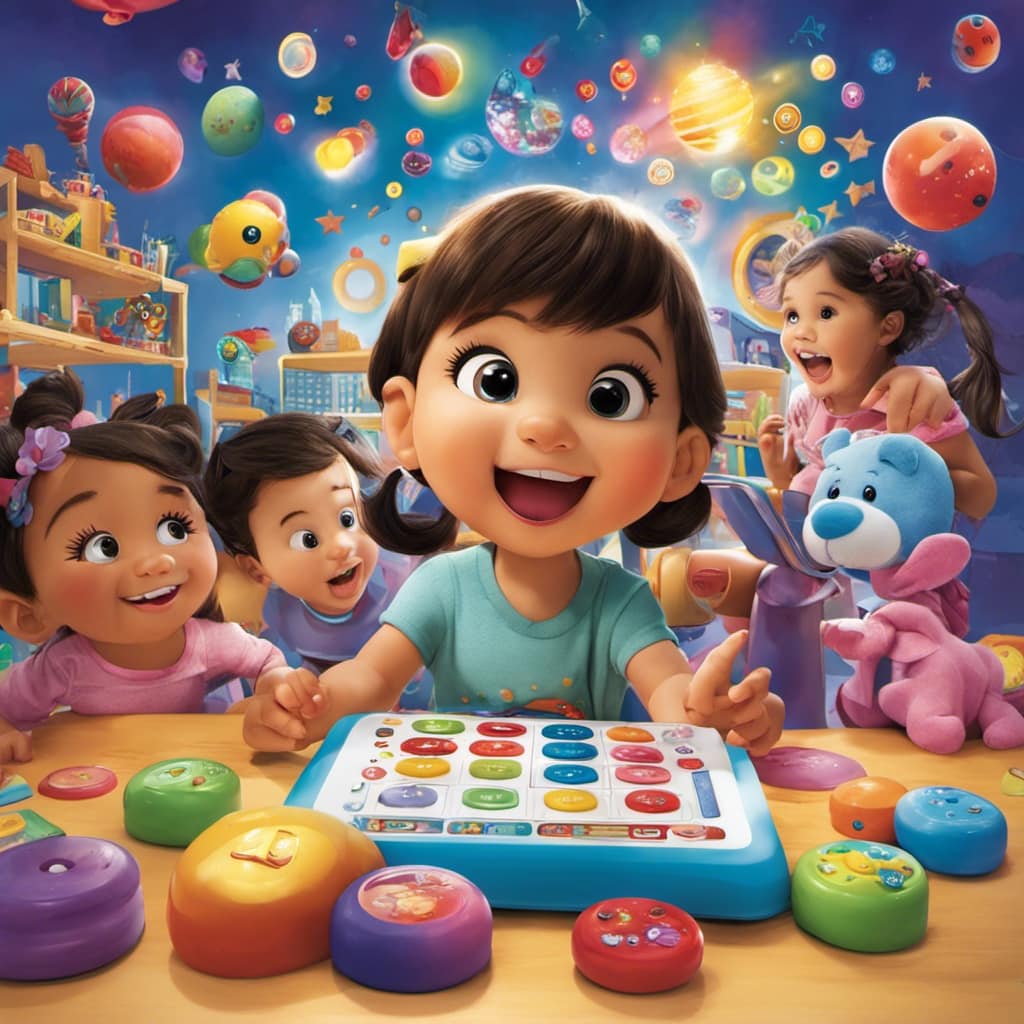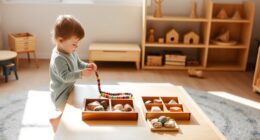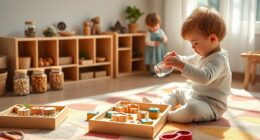In preschool, it’s important to remember that ‘All work and no play leads to a boring day.’ That’s why I’m here – to share tips on creating an engaging and inclusive preschool environment, where fun is guaranteed even if traditional toys are not part of the equation.
By setting clear expectations and boundaries, we promote social interactions, cooperation, and a sense of belonging. No personal toys means more opportunities for creativity, problem-solving skills, and better focus.
Let’s dive in and discover how we can make preschool a place where every child thrives.
Key Takeaways
- Clearly communicate expectations and rules about bringing toys from home to preschool
- Explain the school’s policy and the benefits of the policy to parents
- Encourage social interactions and develop important social skills
- Set clear boundaries, encourage cooperation and sharing, and provide alternatives for play
Setting Expectations and Communicating With Parents
I clearly communicate expectations and rules about bringing toys from home to preschool, ensuring fairness and avoiding conflicts or distractions during class time.
By establishing guidelines, I create a structured environment where all children have an equal opportunity to engage and learn.
I build partnerships with parents by sending a letter or email at the beginning of the school year explaining the policy on personal items.
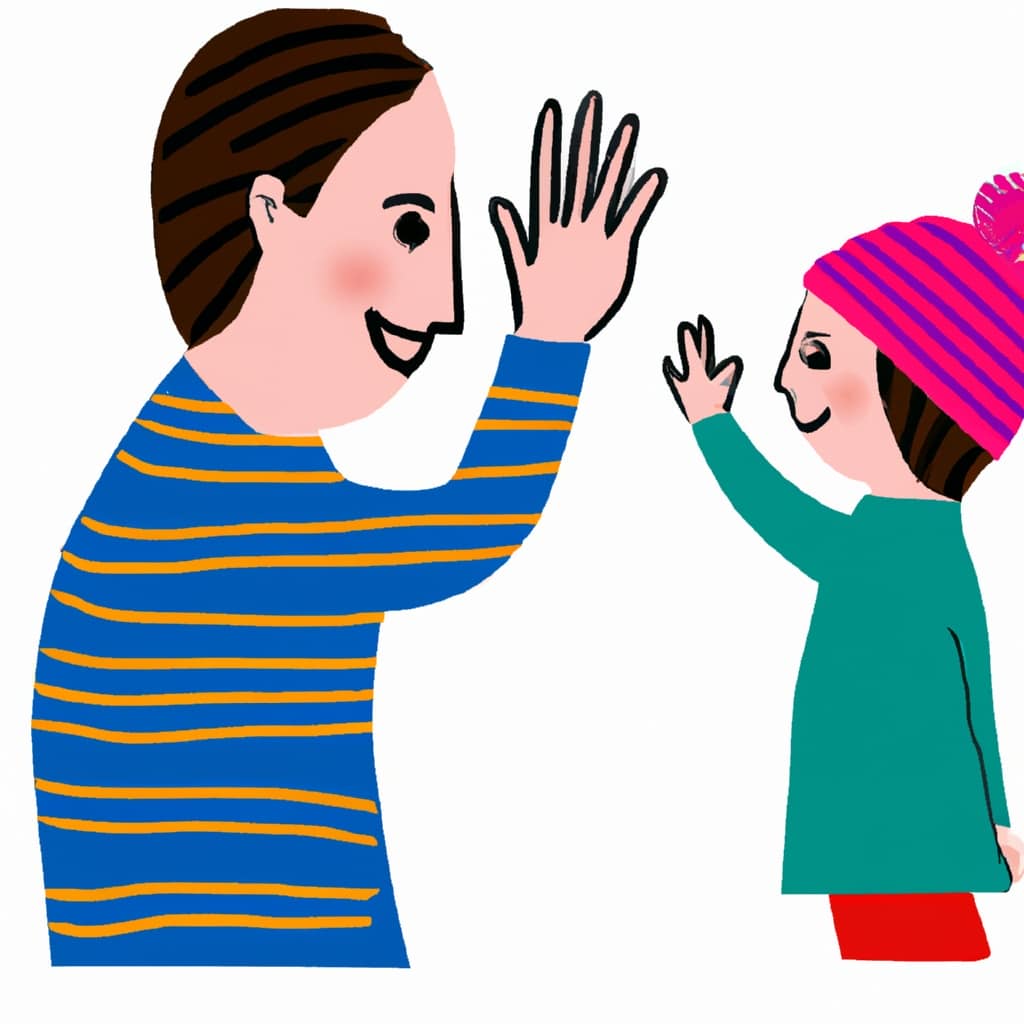
During parent-teacher conferences or back-to-school nights, I discuss the importance of not bringing toys from home, emphasizing how personal items can be distracting.
By fostering a strong partnership with parents, we work together to ensure a smooth transition for the child into the preschool environment.
Through open communication and clear expectations, we create a positive and enriching environment where children can focus, interact, and grow.
Explaining the School’s Policy and Benefits of the Policy
Explaining the school’s policy helps parents understand and support the benefits of the policy. By clearly articulating the reasons behind the policy, we can address concerns and ensure a smooth transition for your child into the preschool environment.
Our no-toys policy benefits the overall functioning of the school by encouraging social interactions among students and fostering a sense of community. Without the distraction of personal toys, children can enhance their focus and concentration, leading to improved social skills through interaction and engagement with peers.
Additionally, this policy promotes creativity and imagination by exploring new materials and engaging in imaginative play. It also helps develop problem-solving skills and the ability to think outside the box, preparing children for future academic success.
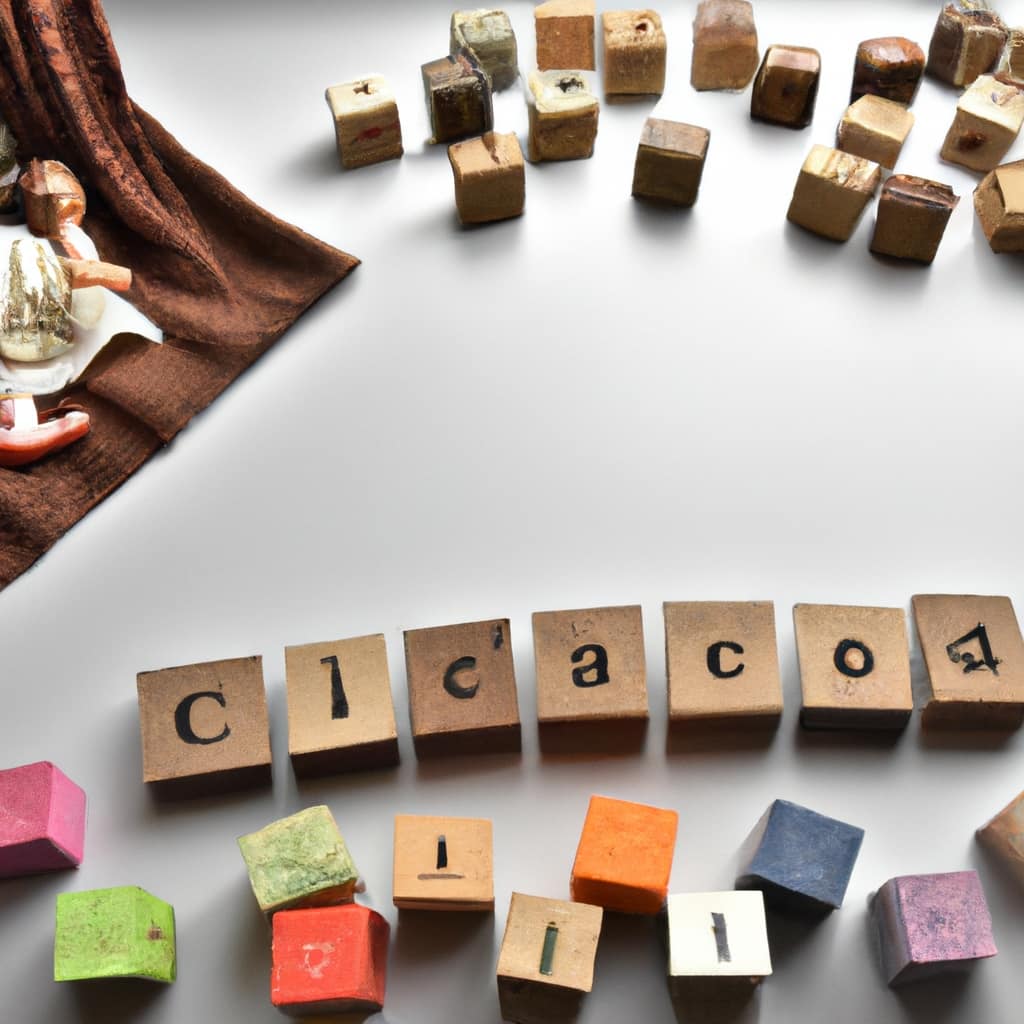
We believe that by adhering to this policy, we create a positive and enriching environment for all children.
Encouraging Social Interactions
Encouraging social interactions is an essential aspect of fostering a positive and collaborative learning environment for all children. Here are some important ways to promote social interactions and foster healthy relationships:
-
Arrange playdates outside of school to enhance social skills and provide opportunities for children to interact with their peers in a relaxed setting.
-
Promote empathy skills during playdates to help children understand and respond to the feelings and needs of others.
-
Create a positive environment in preschool that prioritizes social interactions and supports the development of healthy relationships.
-
Establish clear expectations, encourage open communication, and provide opportunities for collaborative activities.
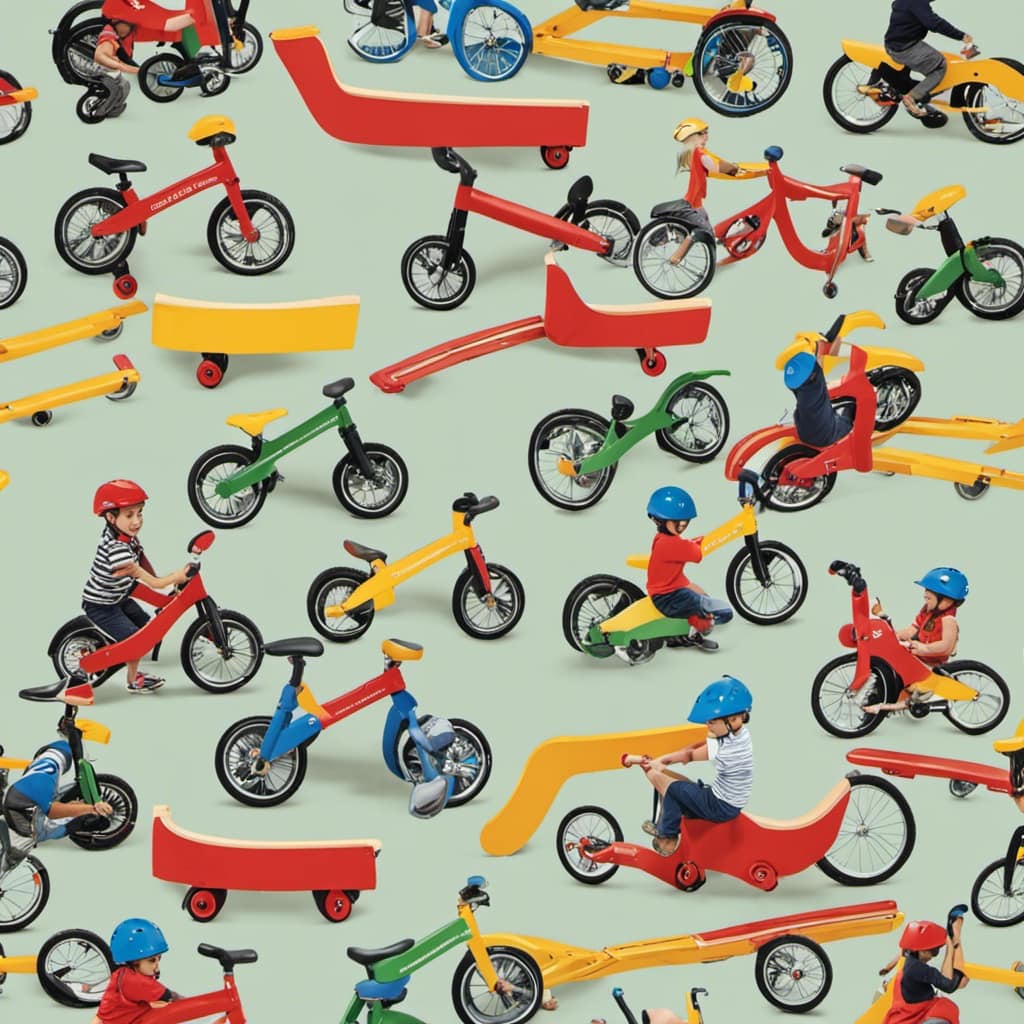
-
Foster a sense of community and belonging by creating opportunities for children to engage with one another and build meaningful connections.
By encouraging social interactions, we can help children develop important social skills, build friendships, and create a supportive and inclusive learning environment.
Playdates and fostering healthy relationships are key to ensuring that children thrive socially and emotionally.
Setting Clear Boundaries and Encouraging Cooperation and Sharing
Establishing clear boundaries from the start helps avoid confusion and promotes cooperation and sharing among children. By setting clear guidelines, promoting fairness and cooperation, teaching conflict resolution, and encouraging empathy and understanding, we create a safe and harmonious environment for all children to learn and play together.
To ensure everyone feels included and valued in the classroom, we communicate the rules and consistently reinforce them. We explain that bringing toys from home can lead to arguments or hurt feelings, emphasizing that the classroom is a shared space. We engage in activities that require teamwork to promote cooperation and sharing. We teach children how to resolve conflicts peacefully and respectfully, guiding them in using their words to express feelings and find mutually agreeable solutions.
Through these efforts, we foster a sense of belonging and inclusion, develop social skills, and build positive relationships through sharing.
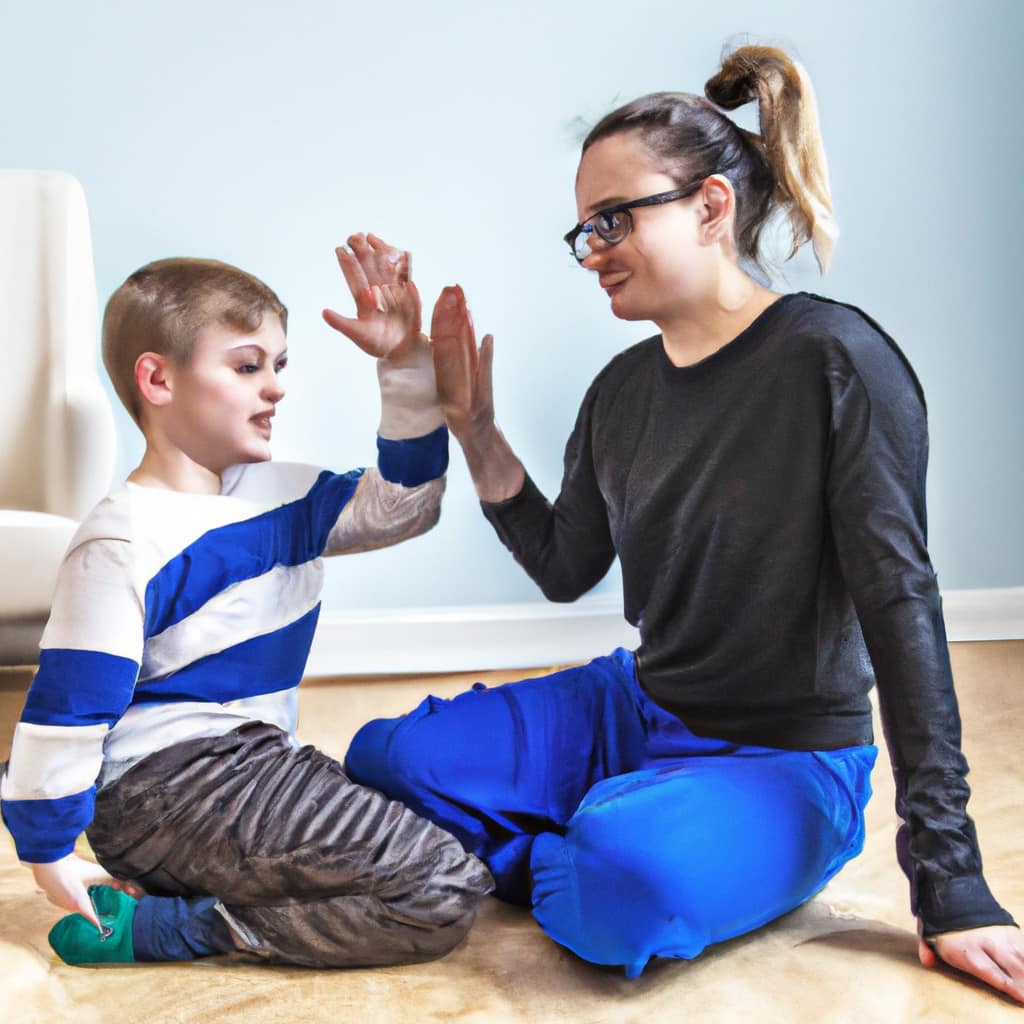
Fostering a Sense of Belonging, Encouraging Sharing and Socializing, and Providing Alternatives
To foster a sense of belonging and promote social interactions, I actively encourage children to share and engage in collaborative activities with their peers. Inclusive playtime is an important aspect of our preschool environment, where every child feels included and valued. Through sharing and socializing, children develop essential social skills that will benefit them throughout their lives.
Here are some ways we foster a sense of belonging and encourage sharing and socializing:
- Creating a supportive and inclusive environment for social interactions
- Providing open-ended materials for imaginative play and exploration
- Facilitating group activities and encouraging collaboration
- Allowing time and space for creative play and socializing
- Developing important social and emotional skills through play and interaction
Supporting Development and Promoting Creativity
I actively provide a wide variety of toys and materials in the classroom to support development and foster creativity. By promoting exploration and imagination, I encourage hands-on learning and discovery.
In my classroom, children have the opportunity to engage in open-ended play with materials such as blocks, art supplies, and sensory bins. These activities allow children to use their imaginations and explore their interests in a meaningful way.
Through hands-on learning, children develop important cognitive and fine motor skills. They learn to problem-solve, experiment, and think critically.
Creating a Positive and Enriching Environment
By fostering a sense of belonging and encouraging social interactions, children in my classroom develop important social skills and build positive relationships with their peers. Creating a welcoming community is crucial for fostering a positive and enriching environment for all children. Here are five ways I nurture social skills in my classroom:
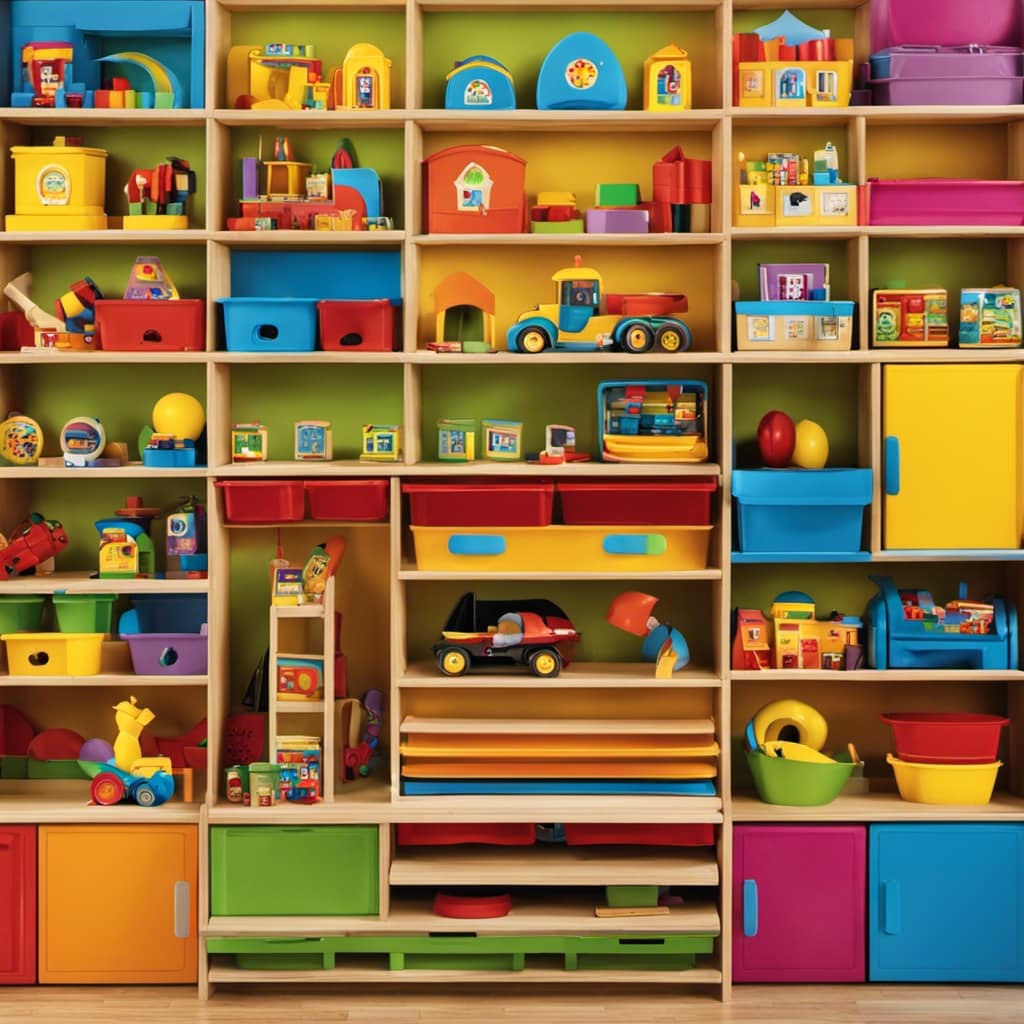
- Establish clear expectations and encourage open communication
- Provide opportunities for collaborative activities and group play
- Promote empathy and understanding through discussions and activities
- Encourage playdates outside of school to enhance social skills
- Foster a sense of belonging and inclusion through cooperative play
Enhancing Focus and Concentration Skills
Now let’s talk about how our no-toys policy helps enhance focus and concentration skills in preschool.
Developing attention skills is an important part of a child’s learning journey. By not allowing personal toys in the classroom, we create an environment that encourages children to focus on the activities and materials provided.
Without the distractions of personal toys, children can engage more deeply in their play and learning experiences. This helps improve their ability to concentrate and stay focused for longer periods of time.
We provide a wide variety of toys and materials in the classroom that are specifically designed to promote attention skills. Through activities that require concentration, problem-solving, and critical thinking, children develop these skills naturally.
Developing Problem-Solving Skills and Thinking Outside the Box
Developing problem-solving skills and thinking outside the box is a crucial aspect of a child’s learning journey in preschool. It is important to promote creativity and encourage children to explore new ideas and solutions.
Here are some ways to foster problem-solving skills and promote creativity in preschool:

- Provide open-ended materials for imaginative play and exploration.
- Encourage children to ask questions and find their own answers.
- Offer opportunities for hands-on activities and experiments.
- Encourage collaboration and teamwork to solve problems together.
- Create a supportive and inclusive environment that values creativity and innovation.
Preparing for Future Academic Success
I believe it’s essential to prepare children for future academic success by fostering a love for learning and providing them with a strong foundation of skills and knowledge.
Building a strong foundation is crucial for their overall development, and it starts in preschool. By focusing on preparing children for future academic success, we can ensure that they are equipped with the necessary skills and knowledge to thrive in their educational journey.
One way to prepare children for future academic success is by providing them with a rich and stimulating learning environment. This can be achieved by offering a wide variety of toys and materials in the classroom that support their development and promote creativity. By engaging in imaginative play and exploring new materials, children can enhance their problem-solving skills and develop the ability to think outside the box.
Additionally, fostering a love for learning is key in preparing children for future academic success. By creating a positive and enriching environment, we can encourage children to be curious, ask questions, and explore new ideas. This can be done through interactive and engaging activities that promote critical thinking, communication, and collaboration.
Frequently Asked Questions
How Do I Explain the No-Toys Policy to My Child and Help Them Understand?
I can explain the no-toys policy to my child by telling them that we want to focus on social skills and making friends without toys. We can have fun and learn together with the toys provided at preschool.
What Alternative Activities Can My Child Engage in Instead of Bringing Toys From Home?
As a parent, I understand the concern about alternative activities when toys from home are not allowed at preschool. However, the benefits of this policy include promoting creativity, social interaction, and problem-solving skills through activities like art, music, outdoor play, and group games.
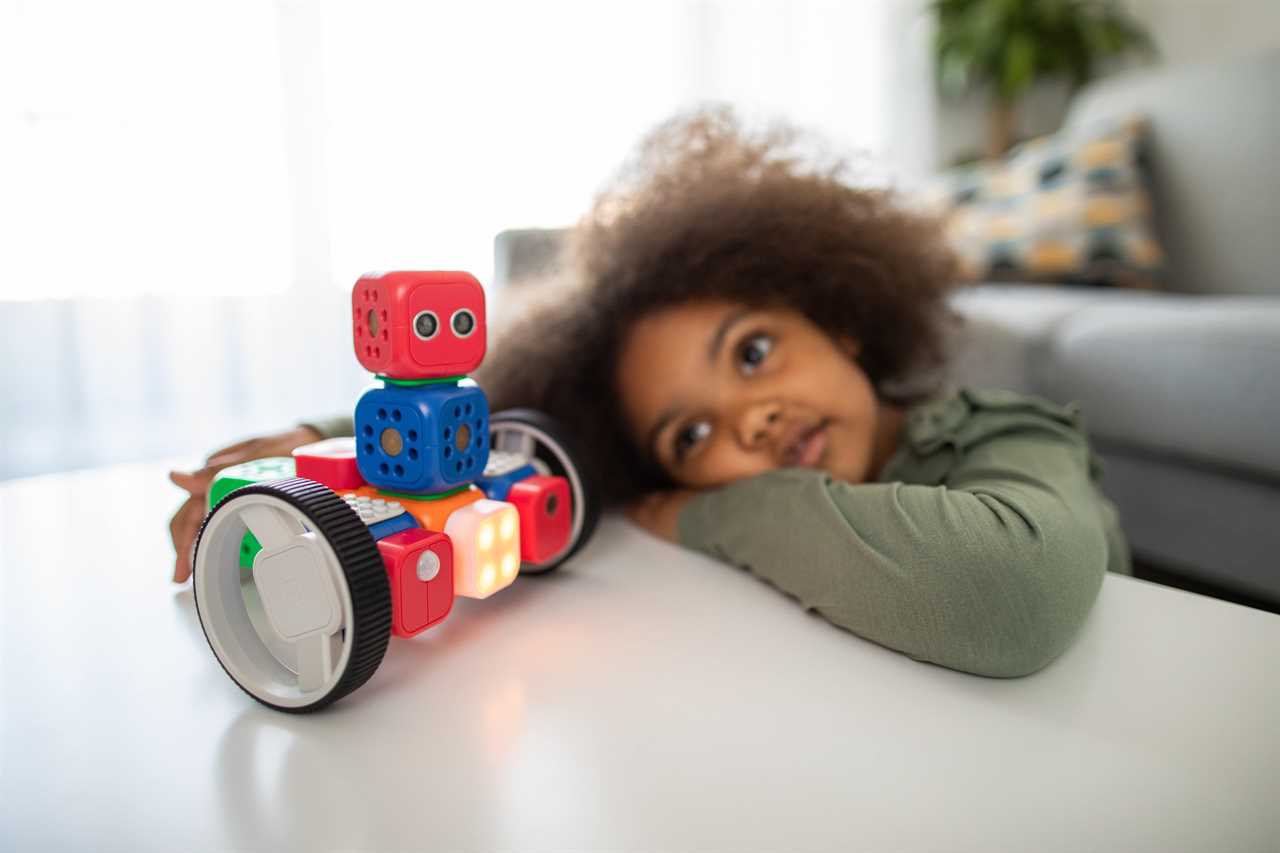
How Can I Support My Child in Developing Social Skills and Making Friends Without Bringing Personal Toys?
To support my child in developing social skills and making friends without toys, I focus on developing empathy and building communication skills. We engage in activities that promote cooperation, sharing, and understanding of others’ perspectives.
What Strategies Can I Use to Encourage Cooperation and Sharing Among Preschoolers?
To encourage cooperation and sharing among preschoolers, I use strategies like guided group activities, promoting empathy, and setting clear expectations. Sharing is like a puzzle, where we work together to create a harmonious and inclusive environment.
How Can I Help My Child Feel Included and Valued in the Classroom Without Bringing Personal Toys?
I can help my child feel included and valued in the classroom by building empathy and fostering creativity. Encouraging social interactions, promoting collaborative activities, and providing open-ended materials for imaginative play can create a supportive and inclusive environment.
Conclusion
In conclusion, not allowing personal toys in the preschool environment can create a vibrant and inclusive space that nurtures the growth and development of every child.
Like a garden that flourishes with diverse flowers, our classroom becomes a place where children can bloom and thrive.
By setting clear boundaries and fostering social interactions, we cultivate a sense of belonging and cooperation.
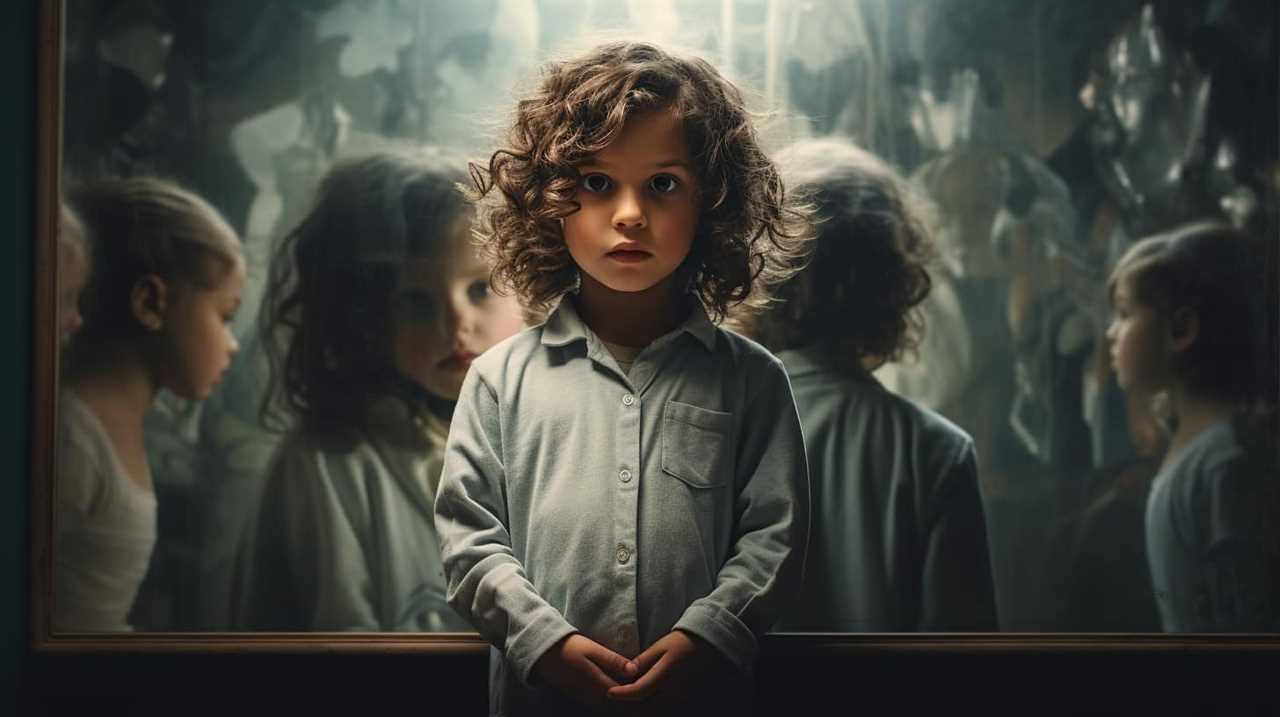
Together, we create a symphony of laughter, creativity, and problem-solving, guiding our little ones towards a future filled with academic success.
Let us embark on this journey, hand in hand, and watch our children’s potential blossom.

